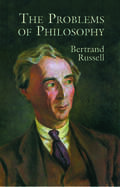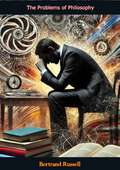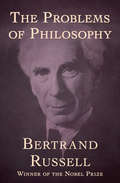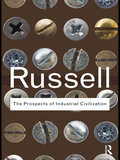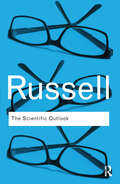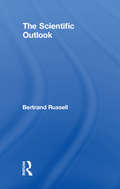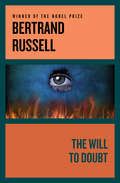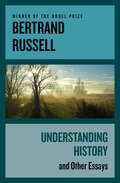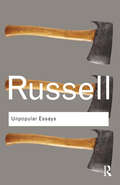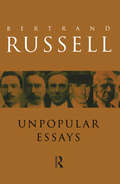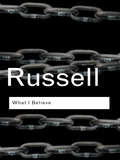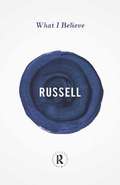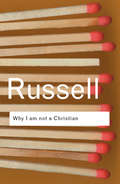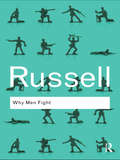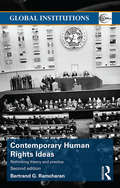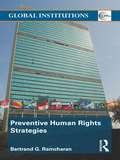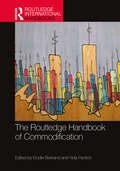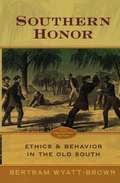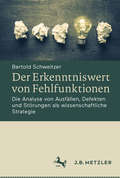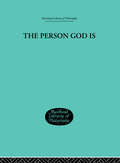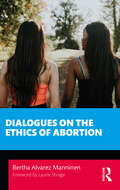- Table View
- List View
The Problems of Philosophy
by Bertrand RussellThe Problems of Philosophy' discusses Bertrand Russell's views on philosophy and the problems that arise in the field. Russell's views focus on knowledge rather than the metaphysical realm of philosophy. 'The Problems with Philosophy' revolves around the central question that Russell asks in his opening line of Chapter 1 - Is there any knowledge in the world which is so certain that no reasonable man could doubt it? He examines this question by delving into the idea of reality versus appearance, as for Russell and other philosophers who share his ideas it is sensory perception of the world around them that shapes their knowledge. It is in this work that he discusses his idea of sense-data to help explain the differences between appearance and reality. 'The Problems of Philosophy' is Russell's first attempt at recording and working through a theory of epistemology, which is the theory of the nature of human knowledge.
The Problems of Philosophy
by Bertrand RussellDive into the foundational questions of philosophy with Bertrand Russell's The Problems of Philosophy. This classic work, penned by one of the 20th century's most influential philosophers, provides an accessible and thought-provoking introduction to philosophical inquiry.Bertrand Russell, a renowned philosopher, logician, and Nobel laureate, examines some of the most enduring problems in philosophy, presenting them in a clear and engaging manner. Russell explores fundamental questions about the nature of reality, knowledge, and the limits of human understanding. Russell's lucid writing and keen analytical skills make complex philosophical concepts approachable for readers of all backgrounds.In this seminal text, Russell addresses key topics such as the distinction between appearance and reality, the existence and nature of matter, the theory of knowledge, and the problem of induction. He also delves into the nature of truth and falsehood, the limits of philosophical knowledge, and the relationship between philosophy and science.Russell's exploration is not merely theoretical; he provides concrete examples and practical applications of philosophical ideas, demonstrating their relevance to everyday life. His balanced approach combines rigorous analysis with a deep appreciation for the wonder and curiosity that drive philosophical inquiry.The Problems of Philosophy is an essential read for students of philosophy, educators, and anyone interested in deepening their understanding of the world. Russell's insightful and compelling treatment of philosophical issues invites readers to think critically about the nature of reality and our place within it.Join Bertrand Russell on a journey through the key questions that have shaped philosophical thought for centuries. The Problems of Philosophy remains a timeless and influential work, offering readers a profound and accessible guide to the enduring questions of human existence.
The Problems of Philosophy: Large Print (Barnes And Noble Library Of Essential Reading Ser.)
by Bertrand RussellBertrand Russell&’s classic primer on Western philosophy and the greatest thinkers of the past three millennia With zest and rigor, Bertrand Russell applies twentieth-century thinking to age-old philosophy, from the works of Plato and Aristotle to those of René Descartes and John Locke. In The Problems of Philosophy, he reviews the Western canon&’s most influential ideas and thought experiments, offering a comprehensive and enlightening text for curious and seasoned philosophy readers alike. Infused with Russell&’s own observations and critiques, this study offers reviews of topics such as idealism, knowledge, and the natures of truth, reality, and existence. Including the author&’s prominent thinking on knowledge by acquaintance versus knowledge by description, The Problems of Philosophy is a critical look at the major philosophical accomplishments spanning from classical Greece to the twentieth century. This ebook has been professionally proofread to ensure accuracy and readability on all devices.
The Prospects of Industrial Civilization (Routledge Classics)
by Bertrand RussellFirst published in 1923, The Prospects of Industrial Civilization is considered the most ambitious of Bertrand Russell's works on modern society. It offers a rare glimpse into often-ignored subtleties of his political thought and in it he argues that industrialism is a threat to human freedom, since it is fundamentally linked with nationalism. His proposal for one government for the whole world as the ultimate solution, along with his argument that the global village and prevailing political democracy should be its eventual results, is both provocative and thoroughly engaging.
The Scientific Outlook
by Bertrand RussellAccording to Bertrand Russell, science is knowledge; that which seeks general laws connecting a number of particular facts. It is, he argues, far superior to art, where much of the knowledge is intangible and assumed. In The Scientific Outlook, Russell delivers one of his most important works, exploring the nature and scope of scientific knowledge, the increased power over nature that science affords and the changes in the lives of human beings that result from new forms of science. Insightful and accessible, this impressive work sees Russell at his very best.
The Scientific Outlook (Routledge Classics Ser.)
by Bertrand Russell'A scientific opinion is one which there is some reason to believe is true; an unscientific opinion is one which is held for some reason other than its probable truth.' - Bertrand RussellOne of Russell's most important books, this early classic on science illuminates his thinking on the promise and threat of scientific progress. Russell considers three questions fundamental to an understanding of science: the nature and scope of scientific knowledge, the increased power over nature that science affords, and the changes in the lives of human beings that result from new forms of science. With customary wit and clarity, Russell offers brilliant discussions of many major scientific figures, including Aristotle, Galileo, Newton and Darwin.With a new introduciton by David Papineau, King's College, London.
The Will to Doubt
by Bertrand RussellOne of modern history&’s great thinkers takes on prejudice, superstition, and conventional wisdom, using wit and insight to argue for a rational way of life. In a brilliant series of essays, Bertrand Russell uses challenging skepticism and sharp humor to attack the obstacles to building a society based on reason. Russell&’s thoughts are as lively and pertinent today as when they were written. His topics range from the defects of the education system to the failure of the belief among the younger generation, from our mistaken concepts of democracy to the ever-present threat to freedom throughout the world—even in the West which prides itself so much on being free.
The Will to Doubt (Paperback Ser.)
by Bertrand RussellOne of modern history&’s great thinkers takes on prejudice, superstition, and conventional wisdom, using wit and insight to argue for a rational way of life. In a brilliant series of essays, Bertrand Russell uses challenging skepticism and sharp humor to attack the obstacles to building a society based on reason. Russell&’s thoughts are as lively and pertinent today as when they were written. His topics range from the defects of the education system to the failure of the belief among the younger generation, from our mistaken concepts of democracy to the ever-present threat to freedom throughout the world—even in the West which prides itself so much on being free.
Understanding History: And Other Essays
by Bertrand RussellEssays on topics from nuclear physics to the role of faith in society from the Nobel Prize–winning philosopher. Originally written in 1943 and published in 1957 by Philosophical Library, Inc, these vigorous essays from one of the most distinguished minds of our time reveal several facets of the English philosopher&’s thought. The title piece exposes the deadliness of the academic approach to the past, and shows how the reading of history can be a vivid intellectual pleasure. In &“The Value of Free Thought,&” Russell once again proves himself a ruthless foe of stifling orthodoxy and a fearless champion of free thought, free action and free speech. Then in a series of articles on a subject near to his heart, he explores the effect of atomic physics on such philosophic concepts as materialism, idealism, determinism and faith. In short, here is a complete banquet of provocative ideas—wise and witty; skeptical and profound—to whet the appetite of every discriminating reader.
Understanding History: And Other Essays
by Bertrand RussellEssays on topics from nuclear physics to the role of faith in society from the Nobel Prize–winning philosopher. Originally written in 1943 and published in 1957 by Philosophical Library, Inc, these vigorous essays from one of the most distinguished minds of our time reveal several facets of the English philosopher&’s thought. The title piece exposes the deadliness of the academic approach to the past, and shows how the reading of history can be a vivid intellectual pleasure. In &“The Value of Free Thought,&” Russell once again proves himself a ruthless foe of stifling orthodoxy and a fearless champion of free thought, free action and free speech. Then in a series of articles on a subject near to his heart, he explores the effect of atomic physics on such philosophic concepts as materialism, idealism, determinism and faith. In short, here is a complete banquet of provocative ideas—wise and witty; skeptical and profound—to whet the appetite of every discriminating reader.
Unpopular Essays
by Bertrand RussellTwelve adventures in argument by the winner of the 1950 Nobel Prize for Literature.
Unpopular Essays
by Bertrand RussellA classic collection of Bertrand Russell’s more controversial works, reaffirming his staunch liberal values, Unpopular Essays is one of Russell’s most characteristic and self-revealing books. Written to "combat… the growth in Dogmatism", on first publication in 1950 it met with critical acclaim and a wide readership and has since become one of his most accessible and popular books.
Unpopular Essays: Fourteen Adventures In Argument By 1950's Nobel Prize Winner (Routledge Classics Ser.)
by Bertrand RussellIn this volume of essays Bertrand Russell is concerned to combat, in one way or another, the growth of dogmatism, whether of the Right or of the Left, which has hitherto characterised our tragic century. This serious purpose inspires them even if, at times, they seem flippant; for those who are solemn and pontifical. In subject they range from Philosophy for the Layman, The Functions of a Teacher, and The Future of Mankind to an Outline of Intellectual Rubbish, Ideas that have helped Mankind and Ideas that have Harmed Mankind.
What I Believe (Routledge Classics)
by Bertrand RussellAlong with Why I Am Not a Christian, this essay must rank as the most articulate example of Russell's famed atheism. It is also one of the most notorious. Used as evidence in a 1940 court case in which Russell was declared unfit to teach college-level philosophy, What I Believe was to become one of his most defining works. The ideas contained within were and are controversial, contentious and - to the religious - downright blasphemous. A remarkable work, it remains the best concise introduction to Russell's thought.
What I Believe (Routledge Great Minds)
by Bertrand RussellBertrand Russell is widely regarded as one of the greatest philosophers of the twentieth century and a brilliant writer and commentator on social and political affairs. What I Believe offers a lucid and concise insight into Russell’s thinking on issues that preoccupied him throughout his life: atheism, religious morality and the impact of science on society. With the addition of two further essays, 'Why I Took to Philosophy' and 'How I Write', this is a superb example of Russell as his very best. With a foreword by Alan Ryan.
Why I Am Not A Christian: And Other Essays On Religion And Related Subjects
by Bertrand RussellThoughts on life after death, man's place in the universe, and other contemplative subjects.
Why I am not a Christian: and Other Essays on Religion and Related Subjects (Routledge Classics)
by Bertrand RussellWhile its tone is playful and frivolous, this book poses tough questions over the nature of religion and belief. Religion provides comfortable responses to the questions that have always beset humankind - why are we here, what is the point of being alive, how ought we to behave? Russell snatches that comfort away, leaving us instead with other, more troublesome alternatives: responsibility, autonomy, self-awareness. He tells us that the time to live is now, the place to live is here, and the way to be happy is to ensure others are happy.
Why Men Fight
by Bertrand RussellAlso published under the title of Principals of Social Reconstruction, and written in response to the devastation of World War I, Why Men Fight lays out Bertrand Russell's ideas on war, pacifism, reason, impulse, and personal liberty. He argues that the individualistic approach of traditional liberalism has reached its limits and that when individuals live passionately, they will have no desire for war or killing. Conversely, excessive restraint or reason causes us to live unnaturally and with hostility toward those who are unlike ourselves. This formidable work greatly contributed to Russell’s fame as a formidable social critic and anti-war activist.
Contemporary Human Rights Ideas: Rethinking theory and practice (Global Institutions)
by Bertrand G. RamcharanWritten by a former UN High Commissioner for Human Rights (2003–4), this book has been fully updated for a second edition and continues to provide a much needed, short and accessible introduction to the foundational human rights ideas of our times and shows that every government is under international obligation to respect and uphold universal human rights. Updates include: Discussion of the recent intellectual challenges to the international human rights movement Examination of the establishment and functioning of the Human Rights Council and the Universal Review Process Evaluation of the developments in the area of the Responsibility to Protect and continued efforts to implement the right to development Inclusion of issues such as the push for compensation for slavery, experiments with democracy in a number of countries and the decisions of international judicial and human rights organs on conceptual and protection issues This book will be of great interest to students and scholars of Global Institutions, International Law and Human Rights.
Preventive Human Rights Strategies (Global Institutions)
by Bertrand G. RamcharanThe prevention of violations of human rights must become the dominant protection strategy of the twenty-first century, nationally, regionally, and globally. This book clearly identifies the need for preventive human rights strategies, maps what exists by way of such strategies at the present time, and offers policy options to deal with the world of the future. Written by a former UN High Commissioner for Human Rights, the book suggests the future lies in strong national protection systems backed up by regional and international organs and an international criminal justice system. The book explores the future of preventive human rights through a wide range of contemporary issues, including: climate change pandemics mass migration global poverty and pervasive inequality inter-state conflicts terrorism, including WMD terrorism gross violations of human rights the financial and economic crisis We are already in a quite different world in the 21st century, and human rights thinking will need to evolve to meet its needs. This important and contemporary volume calls for the modification of current preventive human rights strategies, and is essential reading for all those concerned with the future of international relations and human rights.
The Routledge Handbook of Commodification (Routledge International Handbooks)
by Bertrand ElodieSome goods are freely traded as commodities without question or controversy. For other goods, their commodification – their being made available in exchange for money, or their being subject to market valuation and exchange – is hotly contested. “Contested” commodities range from labour and land, to votes, healthcare, and education, to human organs, gametes, and intimate services, to parks and emissions. But in the context of a market economy, what distinguishes these goods as non-commodifiable, or what defines them as contestable commodities? And why should their status as such justify restricting the market choices of rationally consenting parties to otherwise voluntary exchanges? This volume draws together wide-ranging, interdisciplinary research on the legitimate scope of markets and the kinds of goods that should be exempt therefrom. In bringing diverse answers to this question together for the first time, it finally identifies commodification studies as a unique field of scholarly research in its own right. In so doing, it fosters interdisciplinary dialogue, advances scholarship, and enhances education in this controversial, important, and growing field of research. Contemporary theorists who examine this question do so from across the disciplinary spectrum and ground their answers in diverse scholarly literature and divergent methodological approaches. Their arguments will be of interest to scholars and students of philosophy, economics, law, political science, sociology, policy, feminist theory, and ecology, among others. The contributors to this volume take diverse and divergent positions on the benefits of markets in general and on the possible harms of specific contested markets in particular. While some favour free markets and others regulation or prohibition, and while some engage in more normative and others in more empirical analysis, the contributors all advance nuanced and thoughtful arguments that engage deeply with the complex set of moral and empirical questions at the heart of commodification studies. This volume collects their new and provocative work together for the first time.
Southern Honor: Ethics and Behavior in the Old South (Revised)
by Bertram Wyatt-BrownSouthern Honor revolutionized our understanding of the antebellum South, revealing how Southern men adopted an ancient honor code that shaped their society from top to bottom. Using legal documents, letters, diaries, and newspaper columns, Wyatt-Brown offers fascinating examples to illuminate the dynamics of Southern life throughout the antebellum period. He describes how Southern whites, living chiefly in small, rural, agrarian surroundings, in which everyone knew everyone else, established the local hierarchy of kinfolk and neighbors according to their individual and familial reputation. By claiming honor and dreading shame, they controlled their slaves, ruled their households, established the social rankings of themselves, kinfolk, and neighbors, and responded ferociously against perceived threats. The shamed and shameless sometimes suffered grievously for defying community norms. Wyatt-Brown further explains how a Southern elite refined the ethic. Learning, gentlemanly behavior, and deliberate rather than reckless resort to arms softened the cruder form, which the author calls "primal honor." In either case, honor required men to demonstrate their prowess and engage in fierce defense of individual, family, community, and regional reputation by duel, physical encounter, or war. Subordination of African-Americans was uppermost in this Southern ethic. Any threat, whether from the slaves themselves or from outside agitation, had to be met forcefully. Slavery was the root cause of the Civil War, but, according to Wyatt-Brown, honor pulled the trigger.
Der Erkenntniswert von Fehlfunktionen: Die Analyse von Ausfällen, Defekten und Störungen als wissenschaftliche Strategie
by Bertold SchweitzerDiese philosophische, interdisziplinäre Studie untersucht, auf welche Weise Fehlfunktionen einen einzigartigen Zugang zu Daten für Entdeckung und Prüfung von Theorien in vielen Wissenschaften bieten. Anhand von Beispielen aus Biologie, Evolution, Linguistik, Kognitionswissenschaft und anderen arbeitet sie die Funktionsweise wissenschaftlicher Methoden heraus, die versuchen, aus der Analyse von Fehlfunktionen Erkenntnisse über normale Struktur und Funktion zu gewinnen. Sie identifiziert die allgemeinen Merkmale, Ziele und Ergebnisse der Methoden (zum Beispiel Zerlegung, Sequenzierung und Lokalisierung von Subsystemen) und untersucht ihre Beziehungen zu konventionellen Strategien der Entdeckung und des Testens, etwa kausale und mechanistische Analyseverfahren.
The Person God Is
by Bertocci, Peter AFirst published in 2002. Routledge is an imprint of Taylor & Francis, an informa company.
Dialogues on the Ethics of Abortion (Philosophical Dialogues on Contemporary Problems)
by Bertha Alvarez ManninenWhat happens when two intelligent and highly informed fictional college students, one strongly pro-choice and the other vigorously pro-life, are asked to put together a presentation on abortion? Their conversations over five days – friendly but lively, charitable but clear – are captured in this book. Through these dialogues, students and other interested readers are introduced to the difficult moral issues of abortion. In Chapter 1, readers learn about Roe v. Wade and other relevant legal cases. Chapter 2 covers basic, philosophical issues such as: What is a person? Are fetuses persons? Is fetal potential morally relevant? How shall we define the moral community? Chapter 3 introduces students to Don Marquis’s "Why Abortion is Immoral" and also the metaphysical issues of personal identity and its relevance to abortion. Chapter 4 covers Judith Jarvis Thomson’s "A Defense of Abortion", including objections and responses to the argument from bodily autonomy. Finally, Chapter 5 looks at abortion in hard cases, such as in cases of rape, fetal disability, non-viable pregnancies, and sex-selection; the chapter also includes a conversation on fathers and abortion. With a Foreword by Laurie Shrage, topics headings in the margins, and an annotated bibliography, Dialogues on the Ethics of Abortion is an easy-to-use volume and valuable resource for anyone interested in a fair and clear-headed approach to one of the most contentious moral issues of our time.
